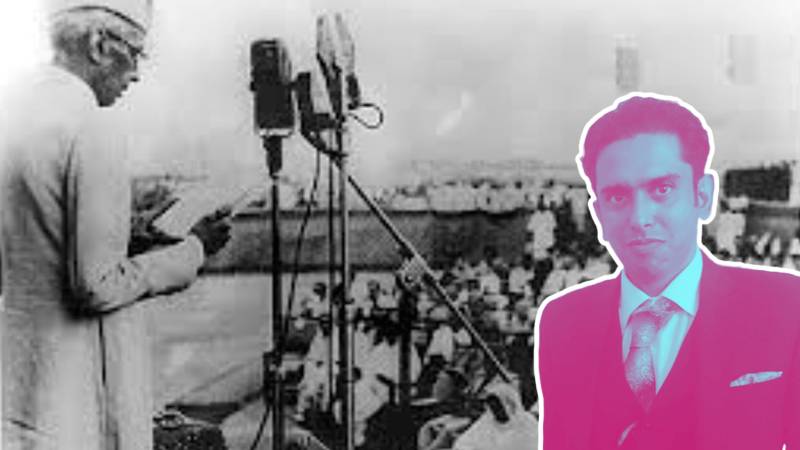
Just before the Pakistan movement gained steam, some chants labelled Pakistan's Founding Father Muhammad Ali Jinnah an apostate, or in Urdu, Kafir-e-Azam.
During an interview with Azaz Syed with author and lawyer Yasser Latif Hamdani on the former's YouTube channel, Hamdani explained that as the Pakistan movement progressed, there were attempts from the All India Congress to not only divide the Muslim vote bank for the All India Muslim League (AIML), and hence Jinnah, but also to push Jinnah to the fringes and hence derail the AIML and their movement.
For this purpose, the Majlis-e-Ahrar-ul-Islam (MAI) was used. MAI was a Muslim group that was aligned with the Congress. Hamdani explained that they had two objectives: the first was the expulsion of the British from India, and the second was religious movements on sectarian movements.
The group's leaders, Maulana Attaulah Shah Bukhari and Maulana Mazhar Ali Azhar ran a movement against Shia in 1937-38 in Lucknow to split the Muslim vote bank. Later, they ran a similar movement calling for the expulsion of members from the Ahmadiyya Community from AIML since they were apostates, while they wanted the British government to declare Ahmadis as non-Muslims.
When they confronted Jinnah as part of the movement in 1944, the Quaid-e-Azam famously stated that he could not declare anyone as non-Muslim, anyone who claimed they were a Muslim and backed their inclusion in the AIML and that their rights would be protected as the rights of any Muslim sect.
Hence, to target Jinnah and the fact that his wife was a non-Muslim, the slogan was used.
However, MAI's mentor, Maulana Azad, criticised the use of this slogan.
Jinnah's birthday
On the controversy surrounding Jinnah's birthday, whether it truly falls on December 25 or not and for which year, Hamdani said that records from the school he attended as a young boy in Jhirk put his date of birth as October 20, 1875.
Moreover, he said that records at the Lincoln's Inn, where Jinnah and over a century later Hamdani studied law, the rules stipulate you gain membership after you turn 21. This would quell the arguments that Jinnah was one of the youngest-ever barristers. Further, it would put his birth year as 1875 rather than 1876. However, Hamdani conceded that Jinnah had proclaimed his birthday December 25, 1876, for reasons best known to him.

